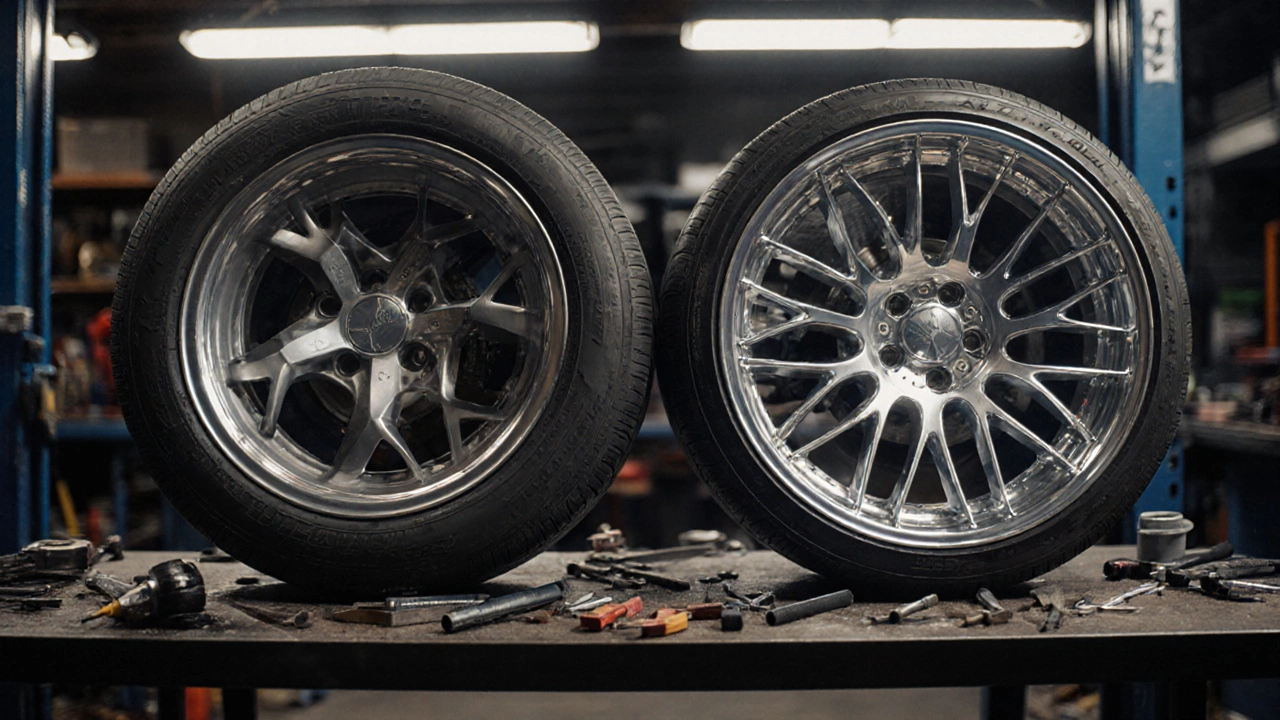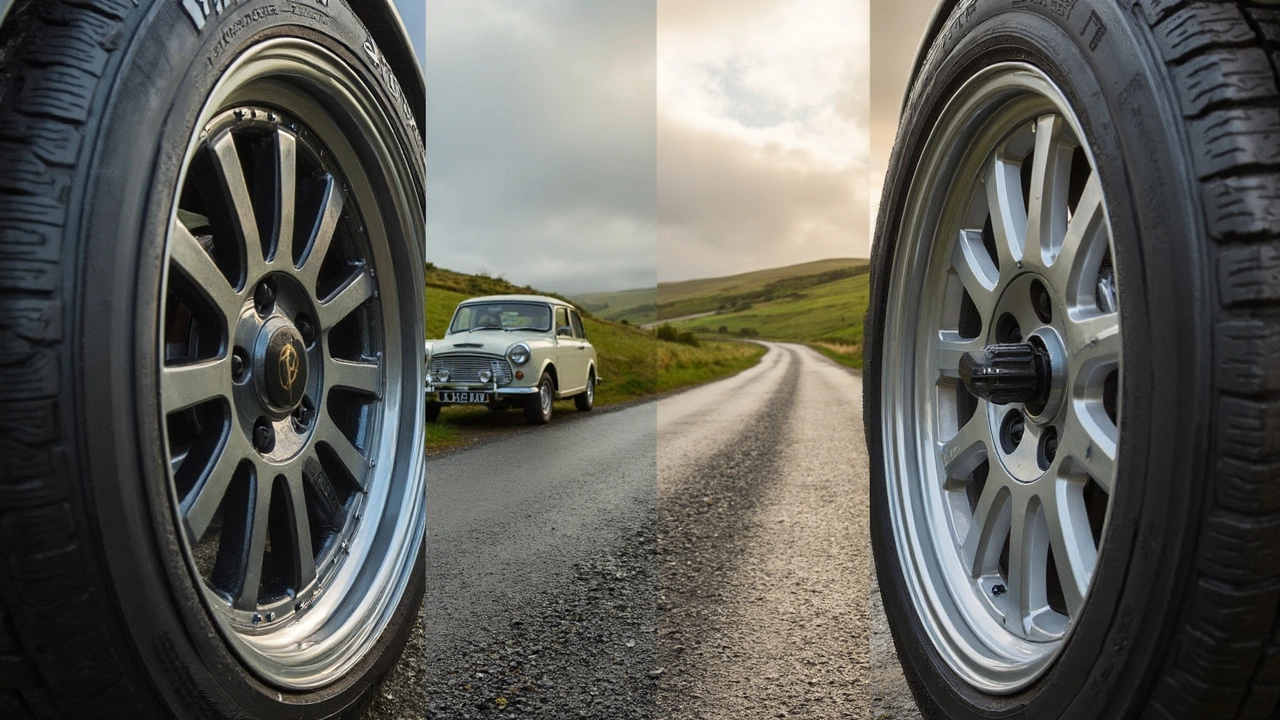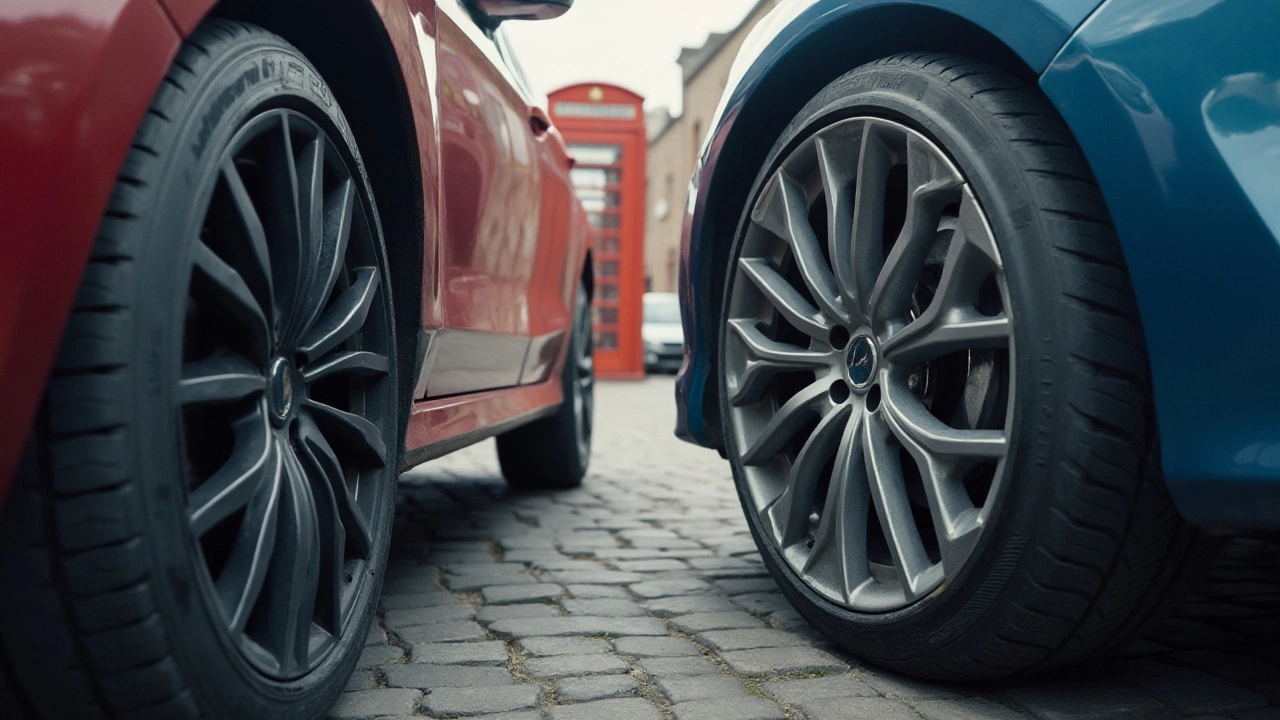Wheel Types – What You Need to Know
When you think about changing your ride’s look, wheels are the first thing that sticks out. The right wheel type can boost style, handling, and even resale value. Below we break down the most common wheel options and give you clear steps to pick the best fit for your car.
Alloy vs. Aluminum Wheels
Alloy wheels are made from a mix of metals, usually aluminum plus small amounts of magnesium or copper. They’re lighter than steel, which helps with acceleration and fuel economy. Aluminum wheels are essentially pure aluminum, offering a sleek finish but sometimes less strength than a proper alloy mix. In everyday driving you’ll notice alloy wheels feel a bit more responsive, especially when you corner hard.
If you love a glossy look and want a lightweight option, alloy is a safe bet. If you prefer a classic matte look and are okay with a bit more weight, plain aluminum works fine. Both can be wrapped or painted at Nottingham Car Wraps & Styling to match any colour scheme you dream about.
Choosing the Right Size
Wheel size matters more than you think. The diameter (measured in inches) affects tyre profile, handling, and clearance. A larger diameter gives a sportier stance but can make the ride harsher if your suspension isn’t tuned for it. The width determines how wide your tyre sits – wider wheels can improve grip but may scrub against the fender if not fitted correctly.
Start with the size your car was built for; you’ll find it stamped on the tyre sidewall or in the owner’s manual. If you want a bigger look, add no more than one size up and consider a reputable installer to avoid rubbing issues. Remember, the right fit also keeps your alignment and brake components working properly.
Wheel offset is another piece of the puzzle. Positive offset pushes the wheel inward toward the suspension, while negative offset moves it outward. Most stock wheels sit around 35‑45mm offset. Changing offset without checking clearance can cause steering vibration, so talk to a pro before you commit.
Beyond the technical specs, think about your driving style. Daily commuters benefit from a comfortable, durable wheel that handles potholes. Track enthusiasts might go for a lightweight forged alloy that cuts rotational mass. Your personal preference guides the final choice.
Don’t forget to match your wheel finish with your overall car theme. Matte black, polished chrome, or custom vinyl wraps can transform a plain set into a statement piece. At Nottingham Car Wraps & Styling we can wrap any wheel type in full‑colour designs, protecting the metal while giving you a unique look.
Maintenance is simple but important. Keep wheels clean, avoid harsh chemicals that can eat away at the finish, and check for cracks after hitting curbs. Regularly inspect lug nuts for tightness – loose nuts are a common cause of wheel loss.
When you’re ready to upgrade, test fit the wheels on a flat surface before mounting. Walk around the car to spot any rubbing or uneven gaps. This quick check saves time and money before you head to the shop.
Finally, consider the resale angle. Wheels that look good and are in good condition add value when you sell. Keep receipts and documentation of any upgrades – buyers appreciate knowing the wheels are genuine and well‑maintained.
Choosing the right wheel type is a blend of style, performance, and practicality. Use the guidelines above, talk to a local expert, and you’ll end up with wheels that turn heads and drive well. Need a custom look? Our team at Nottingham Car Wraps & Styling is ready to help you wrap, paint, or fit the perfect set for your ride. Happy driving!
Dive into the differences between alloy and rim wheels, popular wheel choices for car enthusiasts. Discover what sets them apart, from materials and design to performance and aesthetics. Whether you're looking to upgrade or just curious, this guide reveals everything you need to know. Find practical tips and interesting facts that will help you make an informed decision for your vehicle. Understand how each wheel type affects your driving experience and vehicle appearance.
Discover the key differences between standard wheels and alloy wheels, including their construction, benefits, and drawbacks. Alloy wheels are popular for their aesthetic appeal and performance advantages, while standard wheels are known for their affordability and durability. Learn which type of wheel best suits your vehicle and driving needs. This article explores various aspects of both wheel types to help you make an informed decision.



